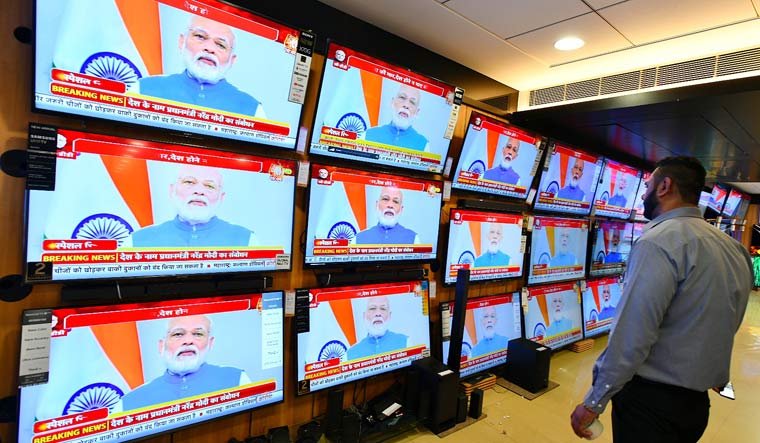In a time of crisis, Modi’s diplomacy through the G20 is crucial

The exuberant spirit of India was loudly expressed on Sunday evening (March 22nd) when millions of citizens across the nation gathered on their doorsteps and balconies for five minutes of cheering and applause.
Some people banged plates and pans together. Others rang bells or played musical instruments. Children joined in with toy guitars and trumpets.
The noisy celebration expressed appreciation for the emergency and medical workers who have been helping India cope with the coronavirus crisis.
So far, the country has been less affected by the pandemic than many other nations, with only 194 cases reported and four deaths recorded by Friday, March 20th.
Nevertheless, life has been severely disrupted.
All international flights have been halted for a week. And a one-day curfew, which started on Sunday, may be extended for a longer period. Prime Minister Narendra Modi has urged all Indians in non-seasonal work to stay at home “for a few weeks” speaking of a “crisis which has engulfed the entire human race.”

Stopping the spread
Like other developing countries, India faces enormous challenges in preventing further spread of the disease. Hygiene standards are often basic and it is extremely difficult for people to wash their hands with clean water and soap in many environments. Furthermore, intensely crowded cities increase the risk of contagion.
Dr Anurag Agarwal, the Director of the Institute of Genomics and Integrative Biology in New Delhi, does not yet advocate lockdowns but proposes other stringent measures.
“The priority right now is to contain the spread of the virus and protect the vulnerable. And the only way to prevent the epidemic going to the next stage is to break the transmission through social distancing. I prefer calling it physical distancing because we are still socially together but physically distant,” Dr Agarwal told the Hindustan Times.
Behaving as a leader
Prime Minister Modi is seeking close cooperation with India’s neighbours in tackling the pandemic. He initiated a video conference with fellow South Asian Association for Regional Cooperation (SAARC) leaders and pledged $10 million to set up a Covid-19 emergency fund for a rapid response team of doctors to serve the entire region. Cooperation with China is also seen as crucial, as India and China share a 3,488-km border, which has often been the scene of tension.
India currently holds the chair of the G20, a position which rotates through the member states. Mr Modi believes this is the body which should coordinate an international response. The British Prime Minister Boris Johnson and the Australian Prime Minister Scott Morrison have lauded his efforts and pledged support.
There is now talk of creating an inner group within the G20 which would focus on the fight against the virus. This could include President Trump, China’s leader Xi Jinping and, from Europe, Ms Merkel and Mr Macron. If, as expected, India joins the steering group, this would place a great deal of responsibility upon Mr Modi. Yet it would also bring him prestige as a world statesman. It is unlikely any other South Asian leaders would be invited into the G20’s inner circle.

Critical voices
An increase in Mr Modi’s global influence would dismay people who deplore his conservative and nationalist approach. His opponents claim he has manipulated India’s democratic system to become an autocrat who muzzles media criticism.
There has been much bitter debate on social media over whether the prime minister is steering India towards becoming a narrow-minded Hindu nation, which marginalises the followers of other faiths and stokes conflict with its Muslim neighbour states. Resentment over this issue was partly to blame for the recent deadly sectarian violence in Delhi, in which more than fifty people died.
However, Mr Modi retains his grip on power and faces little effective domestic political opposition. He continues to use his charisma and communication skills to rally support not only among his own party and base but from a majority of the country’s citizens. As the winner of successive elections, he projects himself as the people’s choice as leader of the world’s largest democracy. It is unsurprisingly that Mr Trump recently referred to him as India’s “father”.
As the applause and potbanging on Sunday evening showed, most Indians welcome the call to put aside divisions over caste and religion for the sake of a national campaign against a deadly disease. Mr Modi’s greatest challenge is to inspire months, if not years, of national unity and international support.
For that, he will need to employ a great deal of diplomatic skill. His outreach to the rest of South Asian is a promising start. He also now needs the world on his side.


















